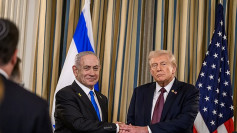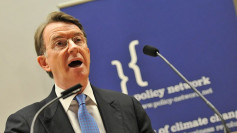Recently declassified MI5 files have shed light on one of the most infamous chapters in Cold War espionage, revealing previously hidden details about Soviet infiltration in Britain's intelligence establishment and the royal household. The documents, released by the UK's National Archives, expose the exploits of Soviet double agents like Kim Philby and Anthony Blunt, members of the infamous Cambridge Spy Ring, and their shocking betrayals. They also unveil how Queen Elizabeth II was kept in the dark about a spy in her palace for years.
Anthony Blunt, a trusted art adviser to the queen, confessed in 1964 to being a Soviet spy. Despite his admission, Blunt retained his royal appointment, knighthood, and social standing. Palace officials refrained from informing Queen Elizabeth, fearing it would cause unnecessary distress. Martin Charteris, the queen's private secretary, reportedly told MI5 chief Michael Hanley that informing her "would only add to her worries."
The queen was eventually briefed on Blunt's double life in 1973, with Charteris later noting she received the news "calmly and without surprise." Blunt's treachery was publicly disclosed in 1979 by Prime Minister Margaret Thatcher, stripping him of his knighthood. He was never prosecuted and died in 1983.
The files also delve into the actions of Kim Philby, another member of the Cambridge Spy Ring. Philby, who worked for MI6, betrayed critical British intelligence to the Soviet Union for decades. The documents detail his role in exposing KGB officer Constantin Volkov, who had attempted to defect to Britain in 1945. Philby, tasked with handling Volkov's case, alerted his Soviet handlers, resulting in Volkov's abduction and execution.
Philby's betrayal extended to his closest allies. In a secretly recorded conversation with his MI6 colleague Nicholas Elliott, Philby confessed to his treachery. "If I had my whole life to lead again, I would probably have behaved in the same way," Philby admitted, acknowledging his unwavering allegiance to Soviet intelligence.
Elliott confronted Philby in Beirut in 1963, after MI5 received damning evidence from Flora Solomon, a longtime acquaintance, who revealed that Philby had attempted to recruit her as a Soviet agent. Shortly after the confrontation, Philby fled to Moscow, escaping prosecution. His dramatic defection marked the culmination of a career that profoundly damaged Western intelligence operations.
The files reveal that Philby's defection was not just a professional betrayal but a deeply personal one, leaving his colleagues reeling. Despite their long-standing friendship, Elliott may have facilitated Philby's escape or been outmaneuvered by his cunning. The truth remains a mystery, as Elliott took his secrets to the grave in 1994.
Philby's and Blunt's actions exemplified the depth of Soviet penetration into British institutions. The Cambridge Spy Ring, which included Guy Burgess, Donald Maclean, and John Cairncross alongside Philby and Blunt, operated with impunity for decades, causing untold harm. Their betrayals inspired countless books, films, and television series, including the recent "A Spy Among Friends," which dramatized Philby and Elliott's relationship.
The files also reveal the UK government's efforts to shield itself from embarrassment. When Blunt's espionage came to light, officials opted for secrecy, fearing public outrage. Similarly, MI5's early suspicions about Philby failed to yield conclusive evidence, allowing him to remain embedded within the intelligence community for years.






